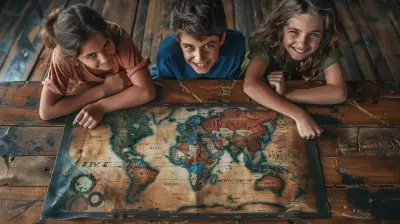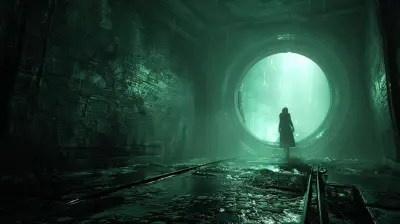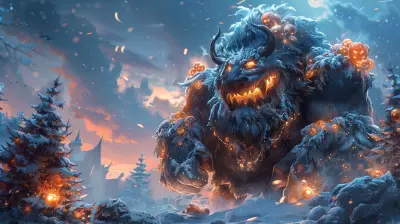Creating Memorable Moments: The Power of In-Game Celebrations
24 September 2025
Video games have come a long way since the days of pixelated screens and beeping sound effects. Today, they offer immersive worlds, engaging narratives, and, perhaps most importantly, moments that stick with us long after we've turned off the console or logged out. One of the most overlooked yet integral aspects of modern gaming is in-game celebrations. Whether it's a victory dance after conquering a difficult boss, a trophy earned for a hard-fought achievement, or a cheeky emote during a multiplayer match, these moments do more than just fill the screen—they create memories.
But why are in-game celebrations so powerful? Why do they resonate with players on such a deep level? Let’s dive in and unravel the magic behind these unforgettable moments.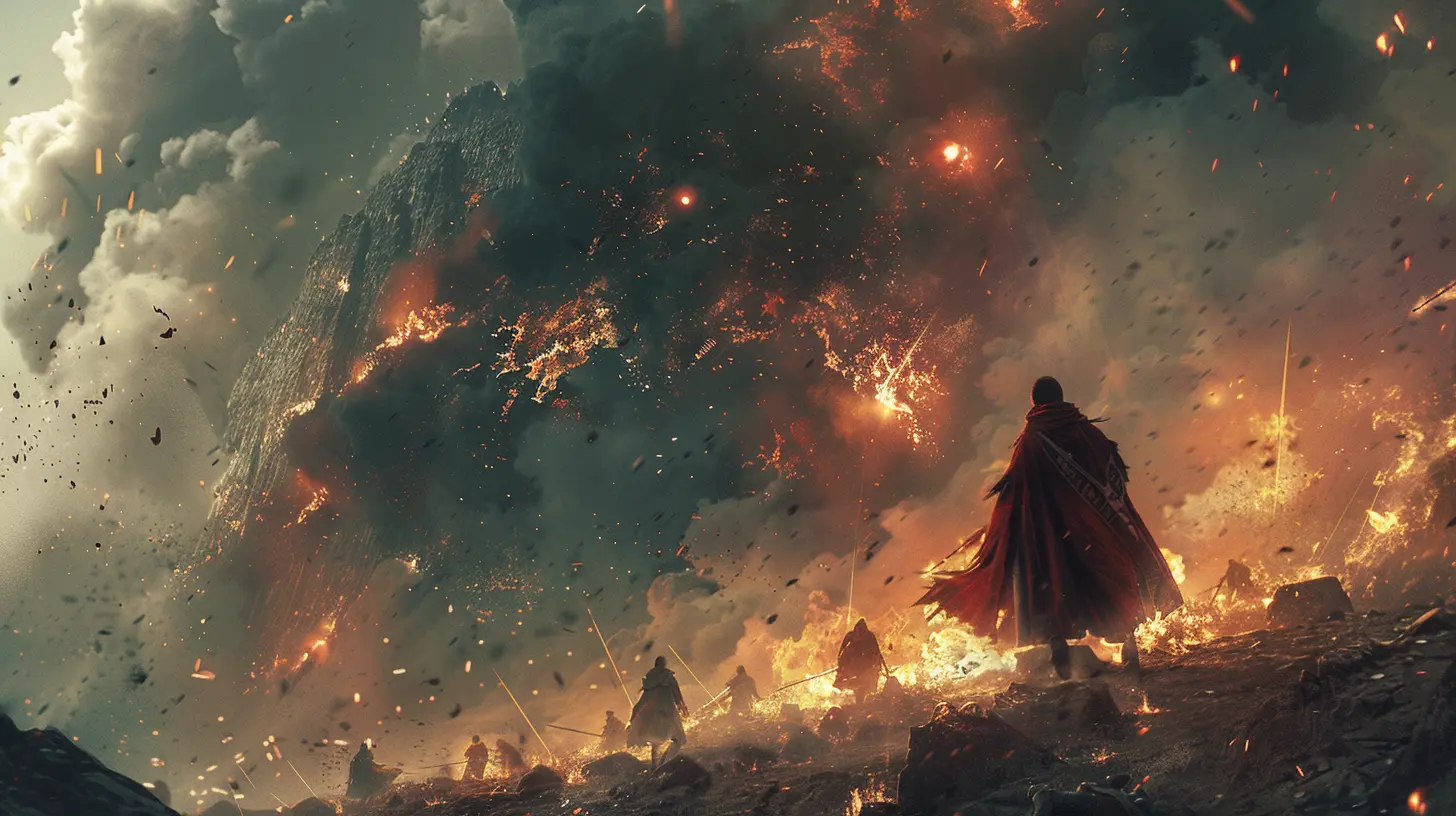
The Psychology Behind Celebrations: Why They Matter
Think about it: why do we celebrate in real life? Whether it’s a birthday party, a job promotion, or even something as small as solving a tricky puzzle, celebrations act as markers of success. They remind us that effort leads to reward, and they give us a moment of joy to bask in our accomplishments. Humans thrive on this kind of positive reinforcement. Now, take that concept and translate it into the gaming world.When a game recognizes your efforts, no matter how small, it feels personal. That shiny achievement popping up on screen or the confetti raining down after you win a race tells your brain, "Hey, you did something awesome!" It stimulates the release of dopamine, the “feel-good” chemical. It’s what keeps us coming back, grinding for just one more win, one more level, or one more trophy.
And let’s be honest—haven’t we all experienced that little rush when the game applauds our efforts, even if it’s just a glowing "Victory!" screen?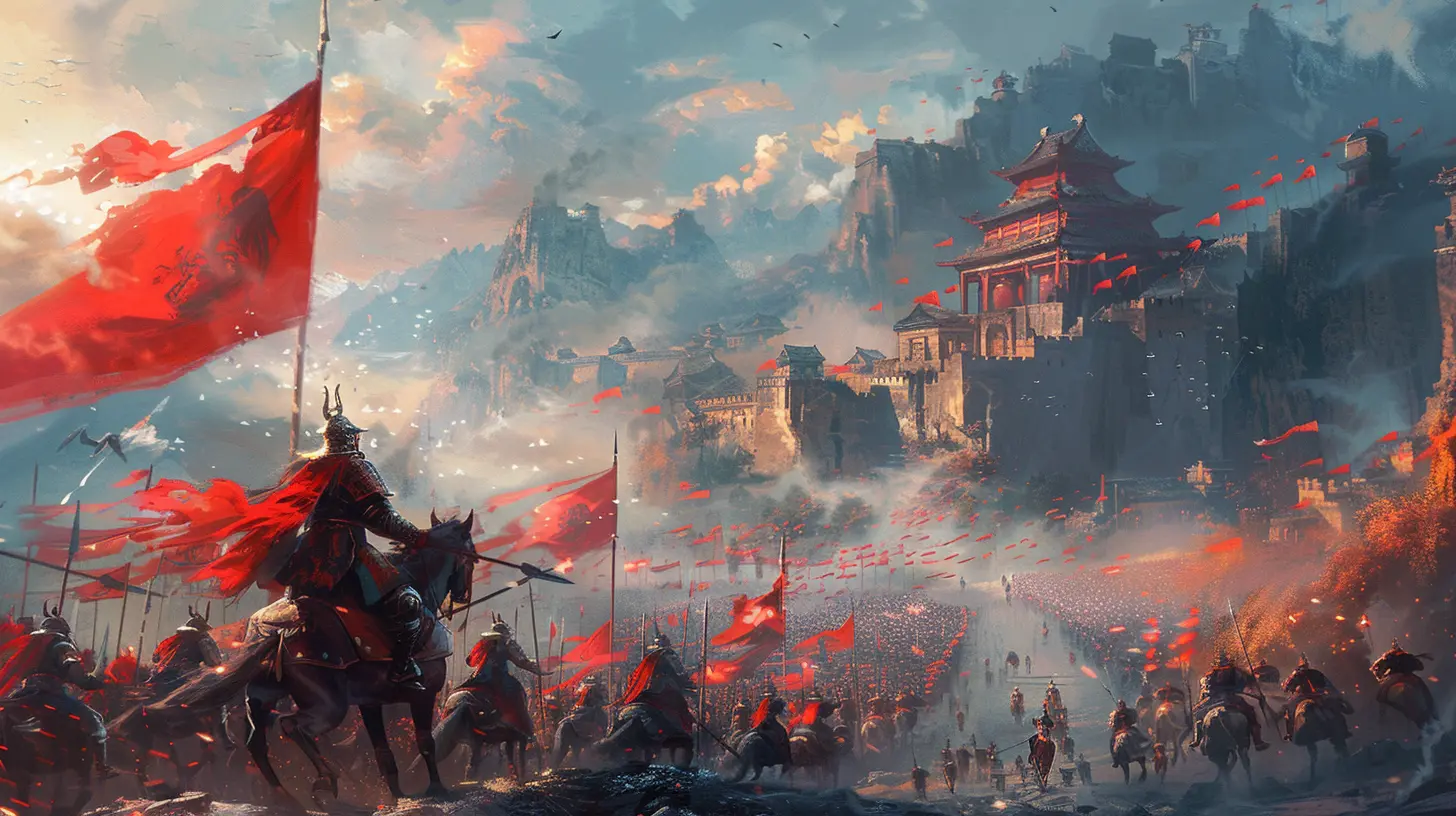
The Evolution of In-Game Celebrations
It’s wild how far we've come. Back in the arcade days, your only reward was a three-letter spot on the high score table. Tom? Bob? Ass? (Yes, we all made that joke.) That was enough back then. But as games evolved, so did the ways they celebrated our accomplishments.In the 90s, platformers like Super Mario Bros. made it a point to reward players with fireworks and celebratory music after beating a level. It wasn’t just about reaching the flagpole; it was about the moment of triumph. Fast forward to today, and celebrations have become more diverse and player-centric. Games like Fortnite let you flaunt your success with customizable emotes (cue the floss dance), while RPGs like The Witcher 3 reward you with heartfelt dialogue and world-building moments that acknowledge your choices.
Modern games, especially live-service ones, now go the extra mile by including player-generated celebratory elements, like buying a new dance or equipping special cosmetics. Not only do these enhance the personal connection to the game, but they also let players express themselves in creative and often hilarious ways.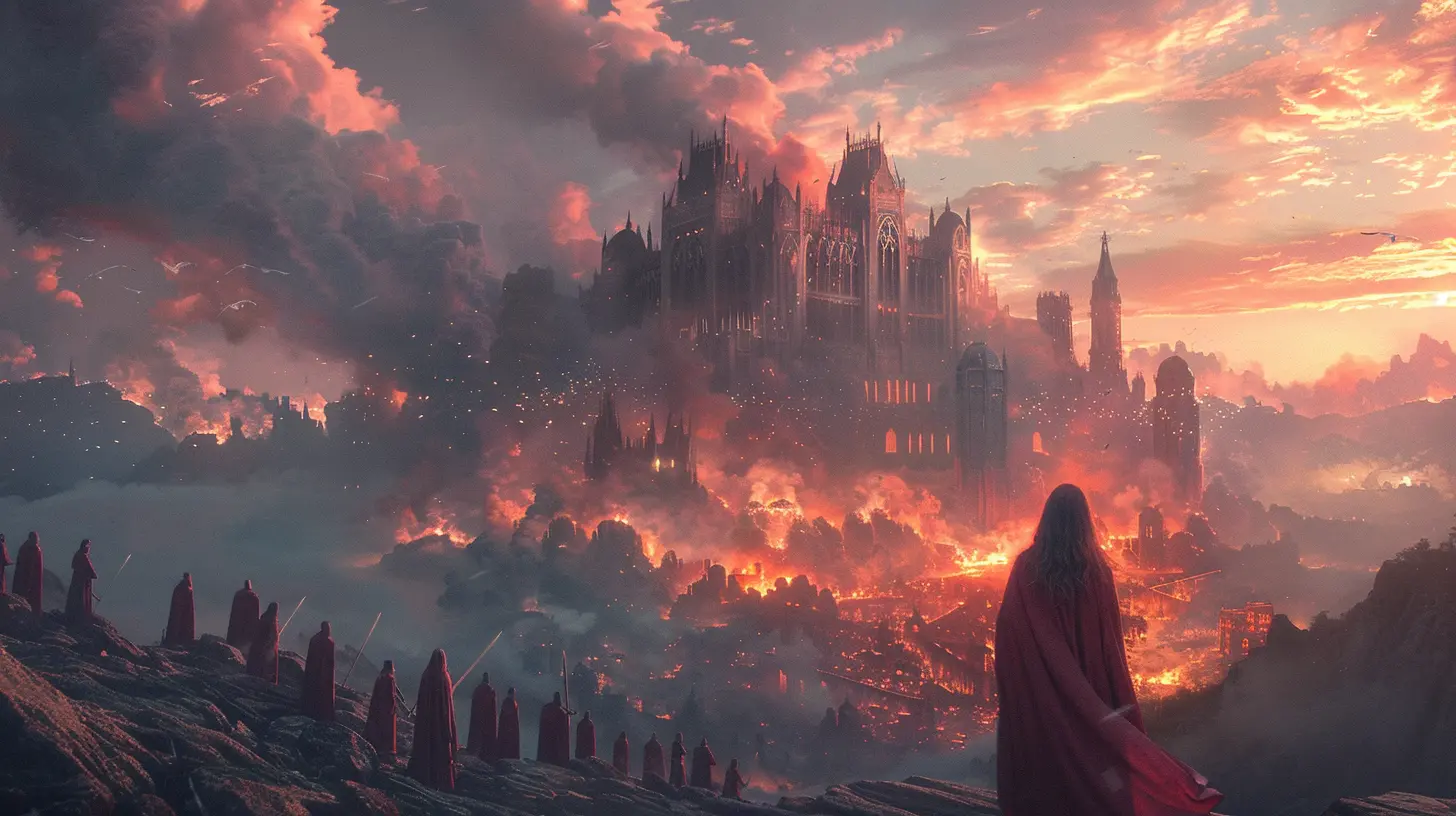
Types of In-Game Celebrations That Leave a Mark
In-game celebrations aren’t just limited to flashy animations or sound effects. They can take many forms, each with its unique charm. Let’s break it down:1. Visual Flair
The most obvious kind of celebration is the visual one. Think fireworks, shining trophies, or cinematic cutscenes. A great example is League of Legends, where a massive "Victory" or "Defeat" banner fills the screen at the end of a match. Sure, it’s simple, but it’s definitive.2. Player Emotes and Gestures
Who doesn’t love a cheeky emote? In games like Fortnite, the ability to bust out a dance after a win isn’t just fun—it's iconic. Remember the viral "Take the L" emote? That single action became a meme. Emotes and gestures celebrate your success and add personality to your playstyle.3. Unlockable Achievements
Achievements or trophies are like digital badges of honor. "You killed 1,000 zombies? Here’s a platinum trophy for your efforts!" They give players a reason to push boundaries and explore every nook and cranny of a game.4. Narrative Acknowledgments
Some of the most meaningful moments come from games that weave celebrations into their story. After finishing a quest in The Elder Scrolls V: Skyrim, townsfolk might acknowledge your heroics. It’s these small details that make the world feel alive and your actions feel important.5. Multiplayer Bragging Rights
Let’s face it—there’s nothing more satisfying than rubbing a win in your opponent’s face (in a tasteful way, of course). Whether it's scoring the final goal in Rocket League or taunting your foe in Super Smash Bros., multiplayer games thrive on player-driven celebrations.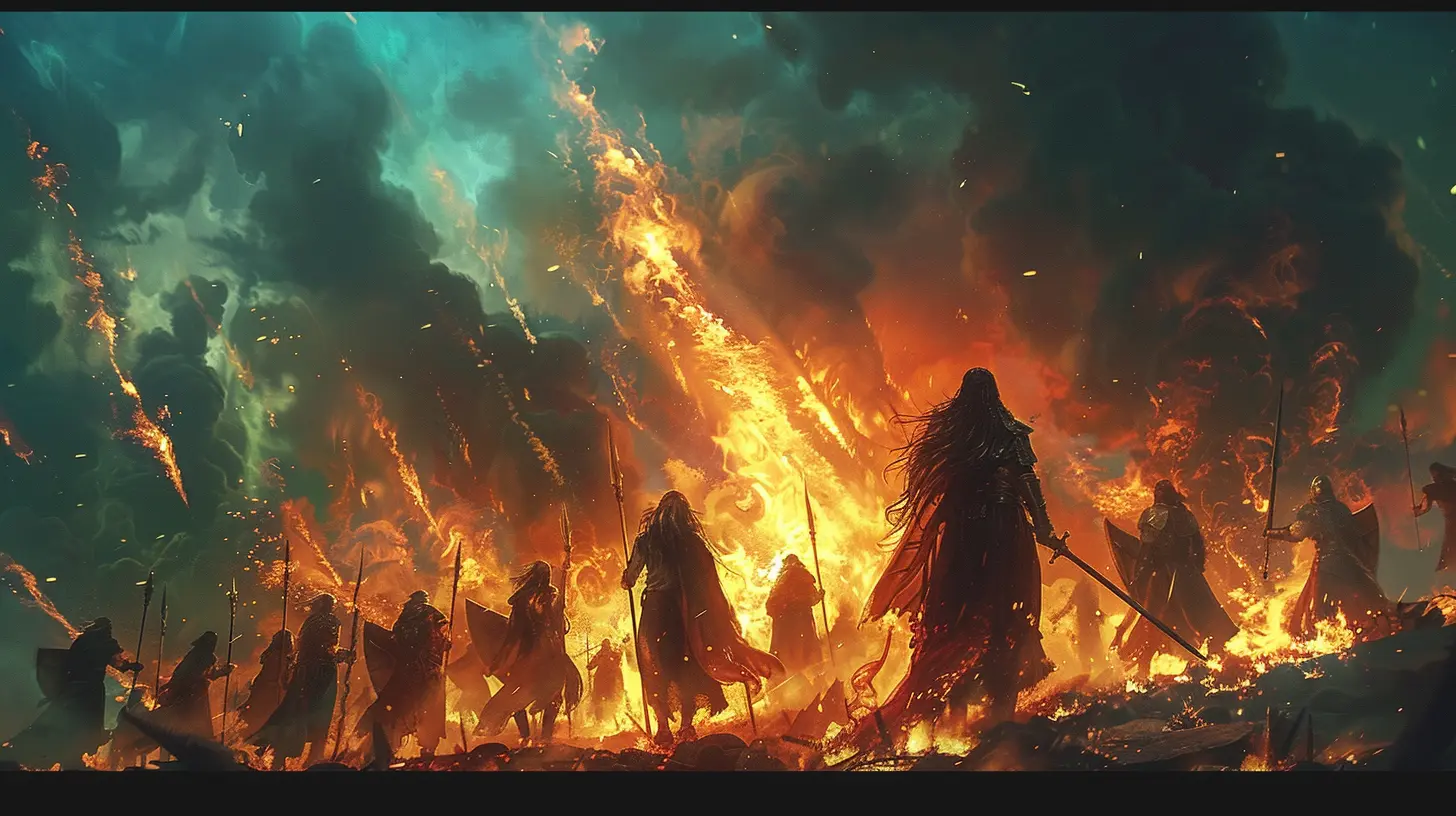
How In-Game Celebrations Build Community
Celebrations aren’t just about the individual player; they’re about the larger gaming community. Take World of Warcraft as an example. When a guild finally defeats a raid boss after weeks of preparation, it’s a shared victory. Screenshots are taken, shoutouts flood the chat, and often, the moment is commemorated online with videos and memes.Similarly, games like Animal Crossing: New Horizons let players celebrate events together, like birthdays or seasonal festivals. These communal experiences deepen the emotional bond players have with both the game and each other.
Let’s not forget esports, where in-game celebrations often steal the spotlight. Watching a professional player pull off a clutch play, followed by an in-game emote or personalized celebration, hypes up the crowd and creates viral moments. It’s like watching a slam dunk in basketball—it’s electrifying.
The Art of Making Celebrations Meaningful
Not all in-game celebrations are created equal. Let’s be real—some can feel repetitive or hollow. The key to a truly memorable celebration lies in its meaning. Here’s what developers get right when they design celebrations that stick:1. Timeliness
The best celebrations don’t drag on. A short burst of confetti? Perfect. A three-minute unskippable cutscene? Not so much.2. Personalization
Games like The Sims let players create their own celebratory moments, from throwing house parties to hosting weddings. When you have control over how and when you celebrate, it feels more impactful.3. Connection to Effort
Let’s be honest—celebrations feel sweeter when they’re earned. If you just breezed through a level, a big fanfare might feel unearned. But if you finally take down a towering boss after 20 failed attempts? Bring on the fireworks.4. Surprise Factor
Sometimes, the best celebrations are unexpected. Remember the first time you landed a trick shot in Call of Duty and the kill cam replayed it for everyone to see? It's those "Oh, wow!" moments that stick.Celebrations as Tools for Player Retention
Here’s a little industry secret: celebrations are also smart business. Developers know that when players feel good, they’re more likely to come back. Positive reinforcement builds loyalty. It’s one of the reasons live-service games like Destiny 2 or Apex Legends keep introducing limited-time events, collectibles, and seasonal rewards. Every celebration is a reason to log back in.Creating Your Own Celebratory Moments
Let’s not forget that gaming is all about you. Sometimes, the best celebrations aren’t crafted by developers but by players themselves. Think of the time you and your friends formed a victory conga line in a multiplayer game or when you spontaneously cheered after hitting a personal record. These organic moments are proof that gaming isn’t just about winning—it’s about having fun.Wrapping It Up on a High Note
In-game celebrations might seem like small, fleeting moments, but their impact is anything but minor. They remind us why we play games in the first place. They reward effort, spark joy, and create stories we’ll tell over and over again. Whether it’s a flashy fireworks display, a cheeky emote, or simply basking in the glory of an achievement, these moments matter. They connect us to the games we love—and to each other.So, the next time your character dances, a trophy pops up, or an NPC congratulates you, take a second to soak it in. You earned it.
all images in this post were generated using AI tools
Category:
In Game EventsAuthor:

Aurora Sharpe
Discussion
rate this article
1 comments
Daphne Gates
Absolutely love how in-game celebrations enhance our gaming experience! They create unforgettable memories and bring players together. Can't wait to see more creative moments! 🎉🎮
October 6, 2025 at 4:28 PM

Aurora Sharpe
Thank you! I'm glad you share the excitement—celebrations truly do foster connection and elevate our gaming experiences! 🎉
